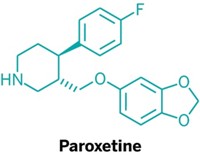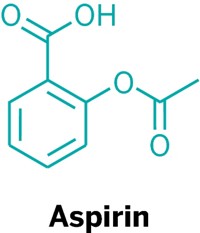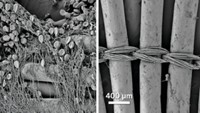Advertisement
Grab your lab coat. Let's get started
Welcome!
Welcome!
Create an account below to get 6 C&EN articles per month, receive newsletters and more - all free.
It seems this is your first time logging in online. Please enter the following information to continue.
As an ACS member you automatically get access to this site. All we need is few more details to create your reading experience.
Not you? Sign in with a different account.
Not you? Sign in with a different account.
ERROR 1
ERROR 1
ERROR 2
ERROR 2
ERROR 2
ERROR 2
ERROR 2
Password and Confirm password must match.
If you have an ACS member number, please enter it here so we can link this account to your membership. (optional)
ERROR 2
ACS values your privacy. By submitting your information, you are gaining access to C&EN and subscribing to our weekly newsletter. We use the information you provide to make your reading experience better, and we will never sell your data to third party members.
Neuroscience
Low-dose aspirin improves memory in mice with Alzheimer’s symptoms
Study suggests activating PPAR receptor leads to increased cellular connections in hippocampus
by Cici Zhang
July 22, 2018
| A version of this story appeared in
Volume 96, Issue 30
Aspirin is one of the most widely used drugs. Besides providing pain relief, it has been shown to reduce the risk of colon cancer and heart attacks. Some suggest that aspirin might also protect against Alzheimer’s disease because the disease is less common in aspirin users than nonusers. But without proper clinical trials, the link is still uncertain. A new study led by Kalipada Pahan of Rush University Medical Center may provide mechanistic clues that underpin that link (Proc. Natl. Acad. Sci. USA 2018, DOI: 10.1073/pnas.1802021115). Using computer modeling and biochemical experiments, the researchers found that aspirin binds to a receptor called peroxisome proliferator-activated receptor α (PPARα), which is involved in fatty acid metabolism. When PPARα is activated by aspirin binding, it triggers a cascade of signaling events that lead to increased connections between nerve cells in the hippocampus, a brain region key for memory formation. In mice that are genetically engineered to have Alzheimer’s-like symptoms, a low dose of aspirin improved the animals’ spatial learning via PPARα signaling, the team reports. Pahan says the ultimate goal is to test whether low doses of aspirin could prevent Alzheimer’s disease in clinical trials.





Join the conversation
Contact the reporter
Submit a Letter to the Editor for publication
Engage with us on Twitter